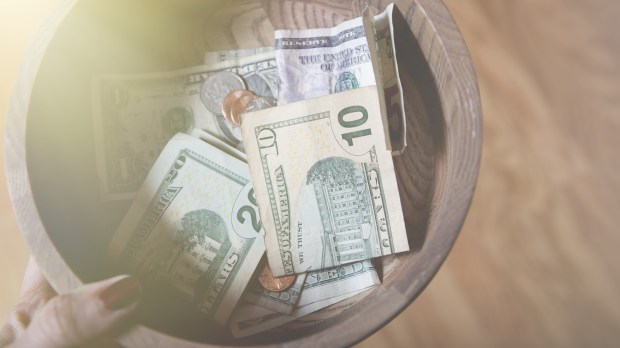Lenten Campaign 2025
This content is free of charge, as are all our articles.
Support us with a donation that is tax-deductible and enable us to continue to reach millions of readers.
The investment arm of the Knights of Columbus hopes to fill in the gap for dioceses suffering a financial loss with church doors closed.
“When you don’t have Mass, not everybody is necessarily thinking, ‘Gosh, father needs money for keeping the lights on,’” said Tony Minopoli, the president and chief investment officer of The Knights of Columbus Asset Advisors, a wholly-owned subsidiary of the Knights of Columbus.
Individual dioceses can apply for up to $1 million in a line of credit, with up to $100 million in lines of credit available to dioceses suffering from a lack of donations due to COVID-19 shutdowns.
Many parishes have urged parishioners to continue making weekly donations either by dropping off an envelope at the rectory, or by utilizing an online giving method such as FaithDirect. However the drop in donations has been significant for most parishes, up to 50% the Archdiocese of New York, for example.
“The church is largely in the same situation as many, many small businesses,” Minopoli said, “as both small businesses and churches are looking at how they can stay afloat until daily life returns to normal.”
The short-term lines of credit carry a roughly 2 percent interest rate for two years. At the end of the term, borrowers can convert the balance to a five-, 10- or 20-year fixed-rate, low-interest loan similar to the type that the Knights of Columbus have offered to Catholic entities since 1896, Minopoli told Fox News.
“It is critical for us to support the Catholic Church in the United States at this time, so that the Church can continue to provide irreplaceable spiritual and charitable support, and can keep the staff supporting its mission and outreach employed,” noted Supreme Knight Carl Anderson. “Our fund is designed specifically to help dioceses and their parishes weather this pandemic financially so that they can continue their important work – now and after the pandemic.”

